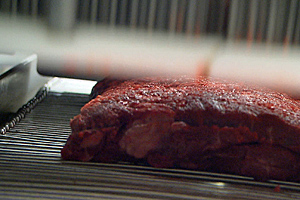
 A food safety advocate group of U.S, Center for Foodborne Illness Research, has claimed that Canadians should have the basic knowhow of the potential risks of a large-scale use of mechanical processing of tenderize steaks and roasts.
A food safety advocate group of U.S, Center for Foodborne Illness Research, has claimed that Canadians should have the basic knowhow of the potential risks of a large-scale use of mechanical processing of tenderize steaks and roasts.
Food safety, in Canada, is being questioned since late September after an E. coli O157:H7 breakout led to more than 16 people getting sick, resulting in the largest recall of beef products in the country. It was not until this Tuesday, that Canadian Food Inspection Agency finally lifted the deferment of XL Foods Inc.’s license for the plant in Brooks, Alta. Now, the massive plant is most likely going to begin production again with better care and improved testing protocols.
It was revealed by the U.S-based Center for Foodborne Illness Research that mechanical meat tenderizers exclusively make use of needles and blades for piercing the steak and roasts. This procedure is notorious to embed the E. coli on the outer surface to the inner centre of the meat, ultimately killing all the odds of removing it while cooking at high temperatures. Health Canada pointed out that mechanically tenderizing meat is a “very common practice” by the suppliers, retailers and restaurants “to improve the tenderness and flavour of cooked beef.”
Barbara Kowalcyk, founder of the U.S. food safety advocate group, stated that consumers “need to know that this product has been mechanically tenderized and that it should be handled appropriately, and that means cooked to a higher temperature.” Kowalcyk shared the story of her son being infected with E. coli, and put through dialysis and on ventilator, but couldn’t recover. Kowalcyk stated “And so, our beautiful child died at age 2½ of an illness a week and a half before that I didn’t even know existed.”

I rather buy meat in its original state; there are cooking methods and herbs that help tenderize meat without risk of E-coli, Salmonella, Listeria or other contaminants. I support that all meat should be labeled if tampered with processes like tenderization or any other.